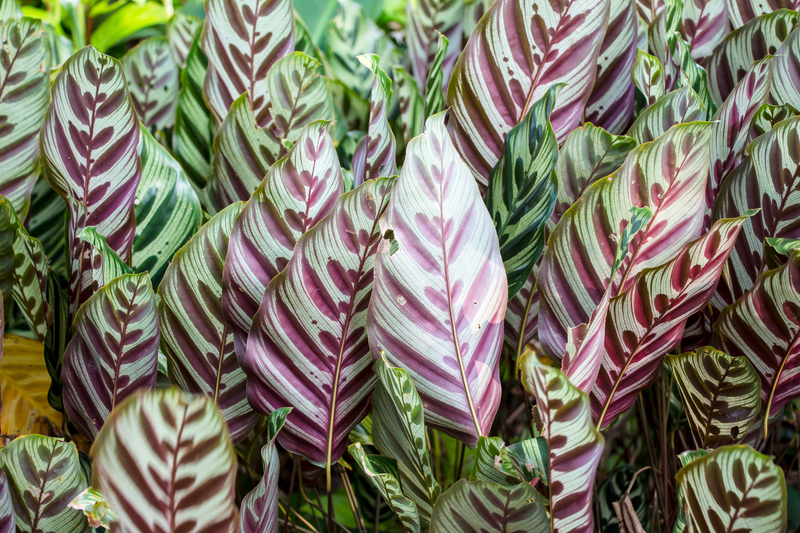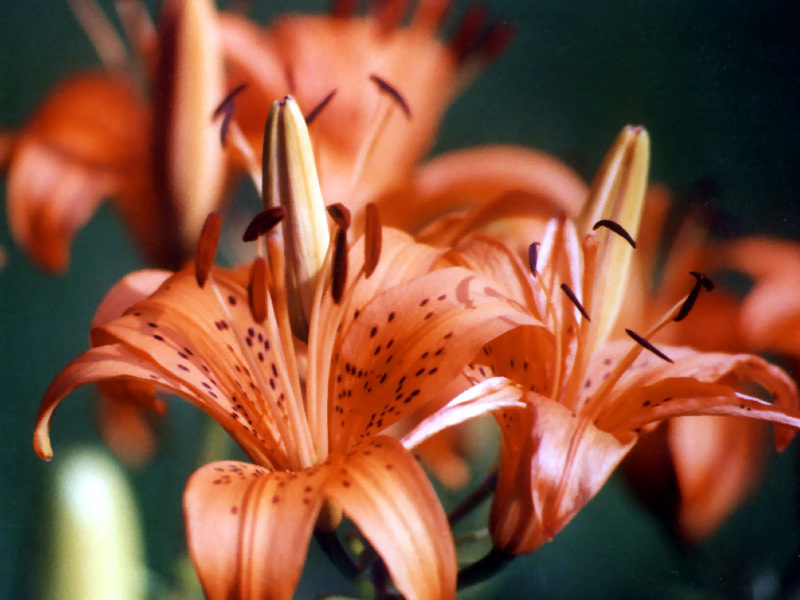Nurture Your Garden: Essential Tips for Gardening Newbies
Posted on 14/06/2025
Nurture Your Garden: Essential Tips for Gardening Newbies
Are you dreaming of vibrant flower beds or a bountiful vegetable patch? Nurturing your garden may seem daunting, but every seasoned gardener started as a beginner. Whether you're working with a spacious backyard or a modest balcony, these essential gardening tips for beginners will help you create a thriving, beautiful green space. Let's dive into the art and joy of nurturing your garden from scratch!
Why Gardening Is Good for You
- Reduces stress and improves mental health
- Provides fresh air and gentle exercise
- Opens the door to healthy homegrown food
- Boosts your home's curb appeal and value
Before we get to the core gardening advice, remember that nurturing your garden is as beneficial for your well-being as it is for your landscape.

Getting Started: Assess Your Space and Soil
1. Know Your Garden's Location
Sunlight, wind, and accessibility are major factors for new gardeners. Walk your potential gardening area at different times of the day. Observe how much sunlight and shade it receives. Take note of:
- Full sun: 6-8 hours of direct sunlight (great for veggies and most flowers)
- Partial shade: 3-6 hours of sun (ideal for shade-loving plants)
- Accessibility: Easy watering, tending, and harvesting spots
2. Test and Improve Your Soil
A healthy garden depends on healthy soil. Begin by digging a trowel of earth--does the soil feel sandy, sticky, or crumbly?
- Clay soil drains slowly but holds nutrients
- Sandy soil drains fast but needs organic matter
- Loamy soil (dark, crumbly) is usually *ideal*
Consider a simple soil test kit to check pH and fertility. For new gardening enthusiasts, amending the soil with compost or organic matter enriches it for better plant growth.
Choosing the Right Plants for Your Garden
Start Small and Simple
As a gardening newbie, it's tempting to plant everything at once. Start with a few easy-to-grow plants suited to your climate and available sunlight. Here are some beginner-friendly choices:
- Lettuce, radishes, and beans (vegetable gardening basics)
- Sunflowers, marigolds, and zinnias for vibrant flowerbeds
- Herbs like basil, chives, and mint (perform well in containers, too!)
Read Plant Labels or Seed Packets Carefully
The secret to gardening success often lies in the details. Check plant labels for sun, water, and spacing requirements before you plant. This ensures your garden thrives from the very beginning.
Designing a Garden That Grows
Plan Ahead for Beauty and Function
Draw a simple sketch of your garden bed or containers. Group plants by their needs--for example, place sun lovers together and shade plants in cooler spots.
- Leave space for plants to grow and spread
- Position taller plants at the back or center
- Mix perennials (return every year) with annuals for continuous color
Try Easy Container Gardening
Apartment dwellers or those with limited space can still nurture a beautiful garden. Container gardening is perfect for balconies, patios, or even sunny windowsills. Choose the right-sized pots with drainage holes and use high-quality potting mix for best results.
Planting: Setting Roots for Success
Best Practices for Planting
- Time it right: Plant after the last frost date in your area--check local planting calendars for guidance.
- Prepare your soil: Loosen it at least a few inches down, remove weeds, and mix in compost.
- Follow spacing recommendations to avoid overcrowding.
- Water well after planting to settle roots.
Planting Seeds vs. Seedlings
- Seeds: Cheaper and abundant. Some, like carrots or beans, grow better when sown directly outside.
- Seedlings (young plants): Save time and give you a head start, especially in short growing seasons or for beginners.
Watering Your Garden Wisely
Common Watering Mistakes to Avoid
One of the most essential skills for new gardeners is learning when and how to water. More plants suffer from overwatering than underwatering!
- Check soil moisture: Insert your finger an inch deep. If it feels dry, water.
- Water early in the morning to reduce evaporation and prevent disease.
- Water the base, not the leaves, to avoid fungal issues.
- Deep watering (less often) encourages strong root growth.
Feeding and Fertilizing: Nourish Your Garden
When and What to Feed
Healthy soil provides much of what your plants need, but sometimes extra nutrition is helpful:
- Use a balanced, slow-release fertilizer for vegetables and flowers.
- Feed container plants more frequently, as water drains away nutrients.
- Compost and organic mulches enrich soil naturally and improve plant health.
Mulching: The Secret Garden Weapon
Mulching is an easy way to nurture your garden, save water, and suppress weeds. Spread natural mulches like shredded bark, straw, or compost around your plants--just don't pile it against stems. Mulch also helps regulate soil temperature and boosts overall plant health.
Pest and Disease Control for Beginners
Safe, Simple Strategies
- Inspect plants regularly: catch problems early
- Encourage good bugs (ladybugs, bees) for natural pest control
- Use hand-picking or safe sprays (like neem oil) only when needed
- Remove diseased leaves and keep garden beds tidy
Healthy, happy plants are more resistant to pests and problems--nurture your garden with care!
Weed Management: Outpace the Weeds
Weeds compete with your plants for light, water, and nutrients. Stay on top of garden chores:
- Pull weeds when the soil is moist and roots come out easier
- Mulch to block sunlight and prevent weeds from taking over
- Stay consistent: A few minutes each week beats a major overhaul later
Seasonal Care: Nurturing Your Garden All Year
Spring
- Start seeds indoors or prepare garden beds
- Plant cool-season crops (lettuce, peas, spinach)
Summer
- Water regularly, especially during dry spells
- Harvest and enjoy fresh produce
- Deadhead flower blooms for longer display
Autumn
- Plant fall bulbs and perennials for next year
- Clean up fallen leaves and spent plants
- Prepare your garden for winter with extra mulch
Winter
- Plan next season's garden and order seeds
- Protect delicate plants or bring pots indoors
- Keep compost piles going for spring use
Essential Gardening Tools for Beginners
- Hand trowel: for digging and planting
- Pruners or garden scissors: for trimming
- Watering can or hose with gentle spray
- Gloves: protect your hands
- Garden fork or shovel (for larger plots)
Invest in quality, ergonomic tools--they make nurturing your garden much easier and more enjoyable.
Common Challenges--and How to Overcome Them
- Limited space? Try vertical gardening or containers.
- Poor soil? Use raised beds or ample compost.
- Time constraints? Focus on low-maintenance plants or mulched beds.
- Unpredictable weather? Choose resilient plant varieties and consider protective covers.

Resources for Gardening Newbies
- Visit local garden centers for region-specific advice
- Join gardening clubs or online forums for support
- Explore books, blogs, and YouTube channels on beginner gardening
There's no need to go it alone--fellow garden enthusiasts love to share tips and help newcomers nurture their gardens!
Conclusion: Start Your Gardening Journey Today
Nurturing your garden is a fulfilling and rewarding hobby that provides beauty, relaxation, and even fresh food right outside your door. With the essential gardening tips for newbies and a bit of patience, you'll soon enjoy a flourishing landscape--whether it's a full-sized vegetable patch, a flower border, or a tiny container garden.
Roll up your sleeves, get to know your plants, and let your garden--and your confidence--grow season after season. Happy gardening!
Latest Posts
Crafting Distinctive Hedge Shapes and Trimming Styles
Achieve a Beautiful Garden with Minimal Effort
Gain Control Over Wind Impact with These Garden Tips

